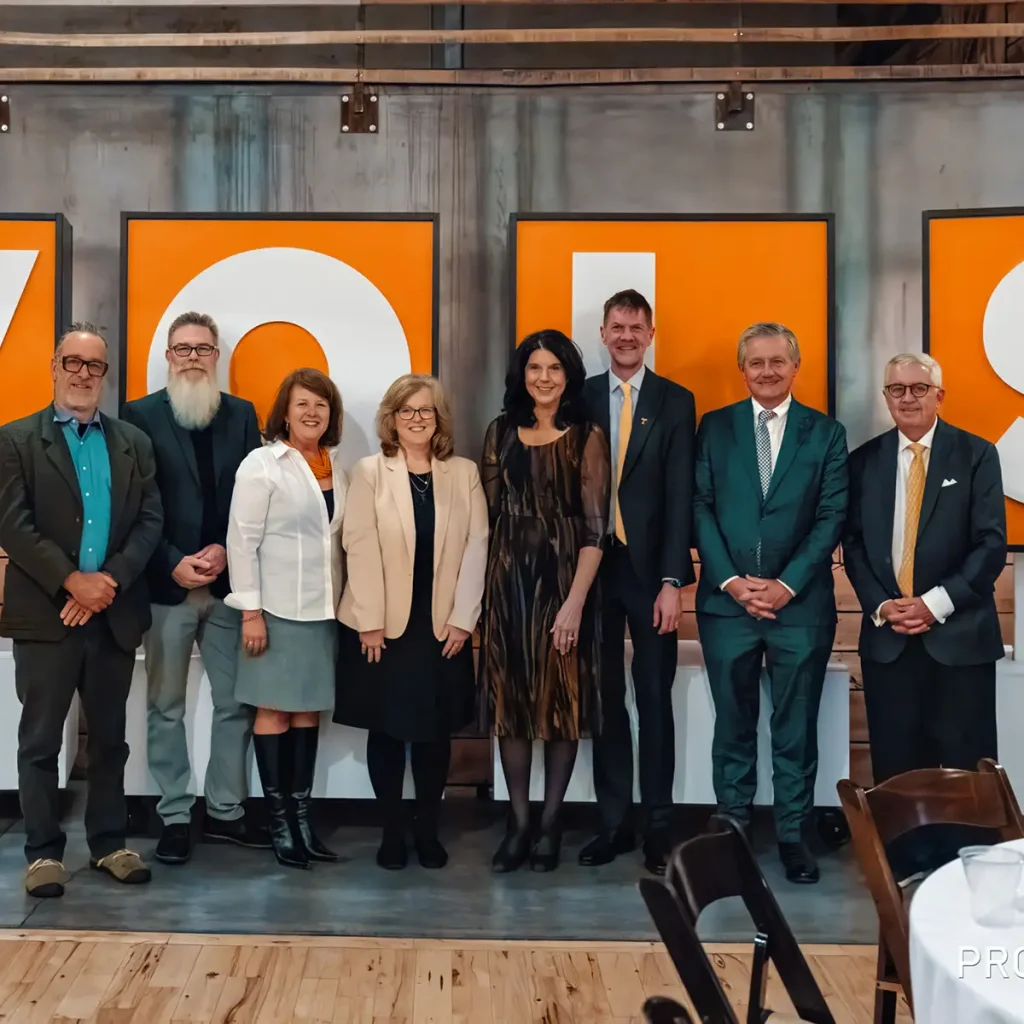Year One: Foundations
The first year of training is about foundations. Process takes precedence over performance. Actors begin a daily regimen of practice in voice, speech, movement, singing, Alexander Technique, scene study, and acting classes. Guest artist workshops often supplement regular offerings. Much of the work is about the actor becoming more free, more personally available, more fully expressive. Actors learn basic tools for an effective approach to a script, mainly with modern realistic texts. Additional courses in graduate research and theatre history round out the first year of training. Most first year actors begin to work in the CBT in A Christmas Carol, but casting is kept to one or two shows in the season to favor training priorities. Actors may also be assigned understudy roles.
Year Two: Transformation
In the second year, actors apply basic tools to more complex tasks and material. Actors direct their increasing freedom into more varied forms. In the voice and speech realm, the work extends into use of heightened language and speech and accent analysis. The work on availability of self moves into characterization; work with modern material moves to work with period and style. A major emphasis of the year is effective and impactful use of language. With some exceptions, actors are steadily in Clarence Brown productions or projects.
Year Three: Integration and Graduation
The third year is about continuing the training, integrating the work of the first two years, working in the CBT, and graduating into the profession. Studio work continues but is more about putting technique together than breaking it down into parts. Actors take fuller control of their creative process. Each actor develops and realizes a Project in Lieu of Thesis (PILOT) that culminates with a performance component. Production work is more prominent, and faculty work in more of a coaching capacity. Some actors have opportunities to teach beginner undergraduate acting classes and/or to assist senior faculty in selected courses. In selecting the CBT season, we turn more attention to providing featured roles for third year actors.
In the final term, focus naturally shifts to graduating and entering the profession. We provide strong, individualized support for each actor in a variety of ways. We host agents, casting directors, and alumni on campus and in webinars. We support each actor in networking, building a professional website, and targeting specific markets where they intend to reside after graduation. We support external auditions and develop demo clips for marketing purposes. At UTK, we take a multi-faceted approach to providing professional exposure, connections, and knowledge of the industry, with the goal of enabling an effective entry to the profession for each actor.
Film and Voice Acting Training
The core of our MFA acting training is in live theatre. However, we strongly believe it is crucial for actors today to be prepared for work in a variety of media. We are committed to providing consistent training in acting for camera and voice acting. In recent years we have had sustained collaborations, workshops, and seminars from guest directors, actors, alumni, casting directors, and agents in acting for film, short filmmaking, auditioning for camera, and voice acting. We are also increasingly integrating camera and voice-acting experience into regular courses.
Guest Artists and Industry Professionals
Consistent with our dual mission, we bring professional directors, actors, designers, casting directors, talent agents, teachers and alumni from around the country and abroad for our students to work with in CBT productions, workshops, seminars, and classes both in-person and online. A typical academic year/production season could feature between 10-20 guests in classes or productions. These guests provide tangible networking and community support to our students.
“The mixing up of young actors and designers with first class professionals is manifestly the only right method of training future theatre artists.”
—Clarence Brown



